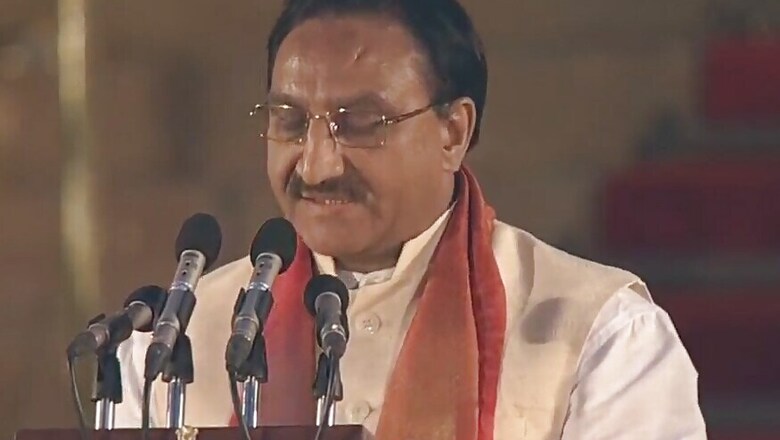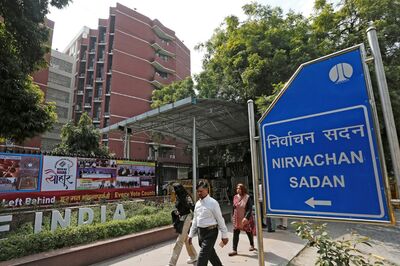
views
Academicians often feel that the Ministry of Human Resource Development (HRD) is not a priority for the Narendra Modi-led NDA government. But the NDA, in its second phase of governance, has tried to give due importance to the HRD and gave the ministry to Ramesh Pokhriyal Nishank, former chief minister of Uttarakhand. Nishank is also known to be a Hindi poet and author, with 44 published books to his credit, and is the recipient of various awards.
But the new HRD minister has one big challenge ahead of him: reshaping the new education policy based on suggestions of all stakeholders, including academics, students and common people, and its proper implementation.
Faced with strong opposition to Centre’s reiteration of the three-language formula and the mandatory teaching of Hindi in states where Hindi is not spoken, Nishank has to convince all stakeholders about it. Being a poet himself, the new HRD minister appears to be very concerned with the teaching of Hindi across the country. The Rashtriya Swayamsevak Sangh (RSS) also gives importance to Hindi in its social mobilisation efforts.
Nishank has to empower Hindi as an identity and also convince non-Hindi states to not to be afraid of using language for communication and he is already in the process of convincing southern states that there is no politics involved in the move that could weaken south Indian regional parties.
Secondly, he is working to encourage original research in universities, IITs and research institutes. He recently held a meeting with the directors of various IITs, vice-chancellors of universities and directors of research institutes and asked them to come up with a plan for new people-centric researches. These researches will be aimed at producing knowledge for the communities and societies and also linking education with livelyhood issues of the people.
Nishank started his career as a teacher in RSS-affiliated Saraswati Shishu Mandir, which gives importance to traditional Indian knowledge to resolve the crisis caused by western influences.
Senior RSS functionary Krishna Gopal, in one of his lectures at GB Pant Social Science Institute in Prayagraj, also gave importance to traditional knowledge resources to bring about conflict-free changes in the Indian society. But a large section of intellectuals and media persons has time and again shown hesitation in accepting this point of view. The new HRD minister needs to convince this group that this kind of interaction with traditional knowledge will not appear as a limitation but as strength for the Indian society and academics.
His third challenge, which is more bureaucratic than perspectival, is changing the nature and structure of the educational bureaucracy in India. The University Grants Commission (UGC), as the leader of Indian educational bureaucracy, is a mega structure and has a long history, institutional memories and ways of functioning. Any change in the system of educational bureaucracy may be injected keeping in view the long institutional memories of our educational bureaucracy. Keeping balance with institutional memories and new innovative intervention will be one of the important challenges for the new HRD minister.
In fact, challenges for him are being produced by the Indian education system. The primary school system also needs to be strengthened. Dalits and other marginal and economically weaker sections have a deep desire to strengthen the government-led schooling system such as making basic schools as model schools like Navodaya and Kendriya Vidyalaya. They want ‘one nation, one education’ board.
Most political parties almost agree on dissolving dualities in our education system. The rich have separate schools and poor have separate schools and this duality produces inequality in the social fabric. The new HRD minister seems sensitive towards such systemic inequalities and may come up with ways to decrease such gaps. There are social groups that need campaigns similar to Sarva Shiksha Abhiyan but there are groups even among poor and economically weaker sections that aspire for model school systems for their children.
Nishank is having to struggle with various such problems, challenges and inequalities that lie in our education system. Let’s see how much he succeeds in tackling these issues. He is struggling not only to transform the nature of our education system but also its perspectives and philosophy. He is also trying to resolve language and identity issues and bureaucratic challenges.
(The author is professor and director of GB Pant Social Science Institute, Prayagraj. Views are personal)




















Comments
0 comment